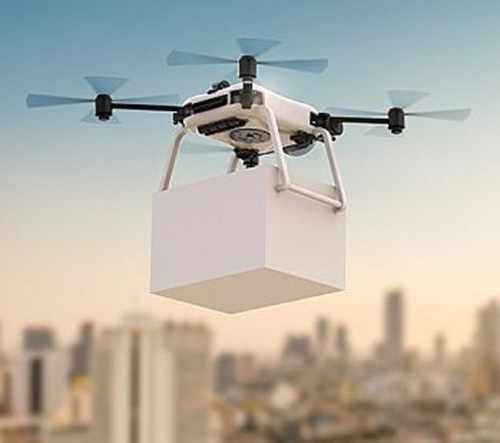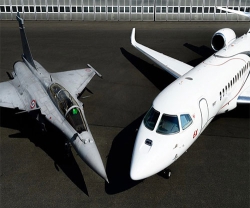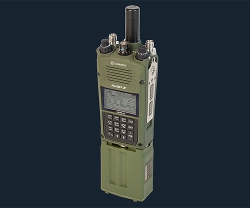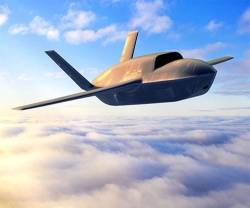American safety science company UL has created a platform designed to help ensure the safety of lithium-ion battery powered Unmanned Aerial Systems (AUS), as drone technology is expected to flow into the Middle East and North Africa (MENA) region in the next decade.
The UL 3030 Standard establishes a baseline for electrical systems to help mitigate electric shock and fire hazards and enables common expectation of safe use. It covers commercial (e.g. agricultural, scientific, research, video for film industry or news broadcasts and roof inspections) and tactical (e.g. government, local police, search and rescue) applications for unmanned aerial vehicle (UAVs) operated by trained pilots.
Drone technology has seen huge growth globally and in the Mena region in recent years. The commercial drone/UAV market is expected to reach $17 billion by 2024, according to a new research report by Global Market Insights, a market research and strategy consulting firm.
With several well-documented accidents caused by drones, the UL 3030 Standard acknowledges an urgent need to lower the potential risk and liability of businesses that produce or sell lithium-ion powered drones as well as also protecting owners.
Engaging with UL early in the UAV design process allows manufacturers and distributors to access compliance expertise and valuable tools that can help avoid obstacles during design, production and certification.
The availability of this testing and certification program is relevant, as recent legislation has been introduced by the Emirates Authority for Standardization and Metrology (ESMA) to oversee the ownership, use, safety and distribution of drones within the UAE.
All stores that stock drones, as well as owners and importers, are now required to be registered with ESMA’s ‘My Drone’ system. Owners who fail to abide by the new rules face fines of more than Dh20,000 ($5,444).
Operating out of offices in Dubai and a state-of-the-art lab facility in Abu Dhabi, UL is a well renowned advocate for safety through the adoption of new technologies. Its safety standard for battery-powered drones is designed to avoid a repeat of the issues that have affected the sale and production of hover boards.
Some models of the popular electric-powered personal transport devices were found to be prone to overheating and in some cases caught fire resulting in damage to property, injuries to users and even death.
As a result, hover boards were removed from sale at major stores and banned from being kept in passengers’ luggage by several airlines.
UL’s science, research and engineering teams developed the appropriate requirements and methodology with the UL 2272 Standard to evaluate and test the entire self-balancing scooter for electrical and fire-hazard safety as a system.
As the commercial and private use of drones increases each year, with the devices used for tasks such as delivery, fire inspection and filming, their continued use is dependent on the safety and reliability of electric and battery technologies.
Hamid Syed, Vice President and General Manager, UL Middle East, said: “We have channeled our years of expertise, knowledge and research into energy creation and power sources into a set of standards, protocols and guidelines to help prevent the range of problems that can be caused by malfunctioning.”
The companies and organizations that work with UL to develop the UL 3030 Standard include global technology and drone firm Intel, leading drone manufacturer DJI, the Association for Unmanned Aerial Vehicle Systems International, the Airline Pilots Association, the Beijing Research Institute of Automation for Machinery, the Federal Aviation Administration, and Transport Canada.
American safety science company UL has created a platform designed to help ensure the safety of lithium-ion battery powered Unmanned Aerial Systems (AUS), as drone technology is expected to flow into the Middle East and North Africa (MENA) region in the next decade.
The UL 3030 Standard establishes a baseline for electrical systems to help mitigate electric shock and fire hazards and enables common expectation of safe use. It covers commercial (e.g. agricultural, scientific, research, video for film industry or news broadcasts and roof inspections) and tactical (e.g. government, local police, search and rescue) applications for unmanned aerial vehicle (UAVs) operated by trained pilots.
Drone technology has seen huge growth globally and in the Mena region in recent years. The commercial drone/UAV market is expected to reach $17 billion by 2024, according to a new research report by Global Market Insights, a market research and strategy consulting firm.
With several well-documented accidents caused by drones, the UL 3030 Standard acknowledges an urgent need to lower the potential risk and liability of businesses that produce or sell lithium-ion powered drones as well as also protecting owners.
Engaging with UL early in the UAV design process allows manufacturers and distributors to access compliance expertise and valuable tools that can help avoid obstacles during design, production and certification.
The availability of this testing and certification program is relevant, as recent legislation has been introduced by the Emirates Authority for Standardization and Metrology (ESMA) to oversee the ownership, use, safety and distribution of drones within the UAE.
All stores that stock drones, as well as owners and importers, are now required to be registered with ESMA’s ‘My Drone’ system. Owners who fail to abide by the new rules face fines of more than Dh20,000 ($5,444).
Operating out of offices in Dubai and a state-of-the-art lab facility in Abu Dhabi, UL is a well renowned advocate for safety through the adoption of new technologies. Its safety standard for battery-powered drones is designed to avoid a repeat of the issues that have affected the sale and production of hover boards.
Some models of the popular electric-powered personal transport devices were found to be prone to overheating and in some cases caught fire resulting in damage to property, injuries to users and even death.
As a result, hover boards were removed from sale at major stores and banned from being kept in passengers’ luggage by several airlines.
UL’s science, research and engineering teams developed the appropriate requirements and methodology with the UL 2272 Standard to evaluate and test the entire self-balancing scooter for electrical and fire-hazard safety as a system.
As the commercial and private use of drones increases each year, with the devices used for tasks such as delivery, fire inspection and filming, their continued use is dependent on the safety and reliability of electric and battery technologies.
Hamid Syed, Vice President and General Manager, UL Middle East, said: “We have channeled our years of expertise, knowledge and research into energy creation and power sources into a set of standards, protocols and guidelines to help prevent the range of problems that can be caused by malfunctioning.”
The companies and organizations that work with UL to develop the UL 3030 Standard include global technology and drone firm Intel, leading drone manufacturer DJI, the Association for Unmanned Aerial Vehicle Systems International, the Airline Pilots Association, the Beijing Research Institute of Automation for Machinery, the Federal Aviation Administration, and Transport Canada.





















